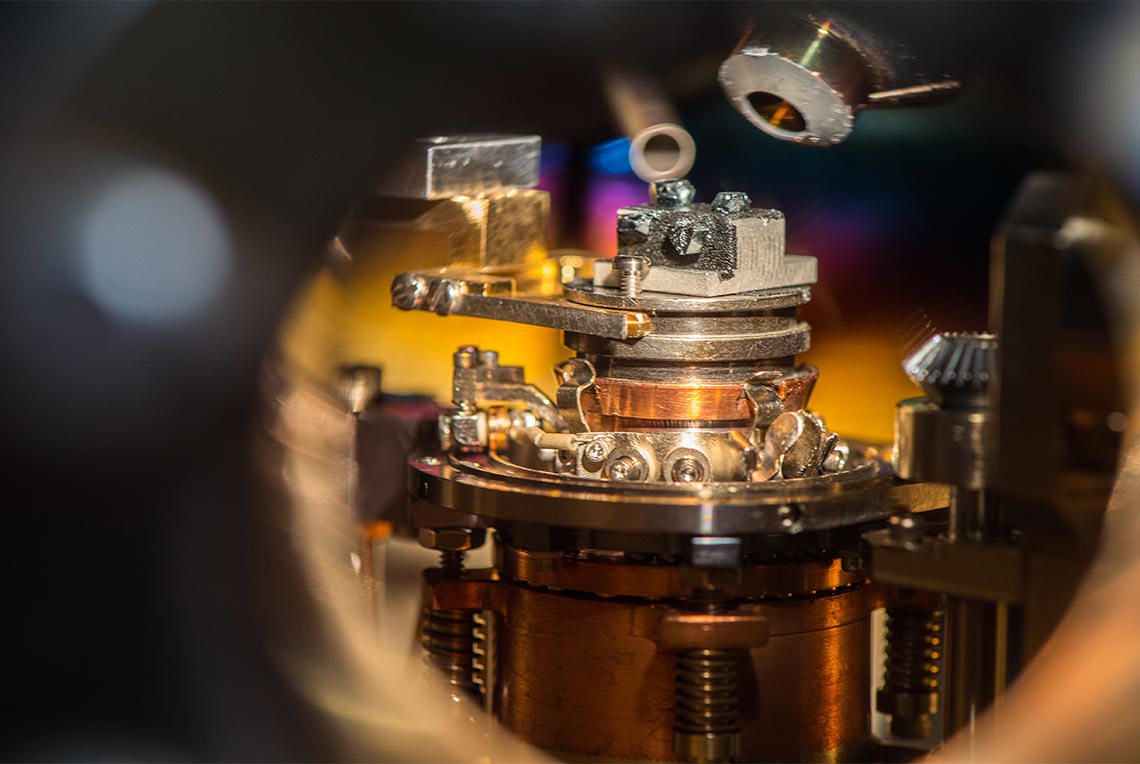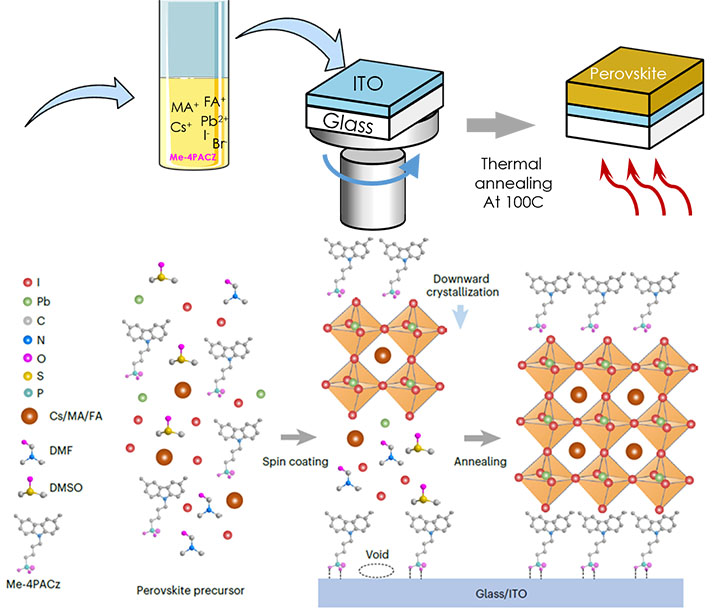Co-Deposition of Perovskite and Monolayer Charge Extraction Layer With Spontaneous Phase Separation
March 16, 2023
Perovskite layers (and the associated solvents) have challenges wetting certain charge extraction layers, which are often made by self-assembled monolayers (SAMs) of carbazole core molecules such as Me-4PACz. Incorporating the molecules for that charge selecting layer directly into the perovskite precursor solves the wettability issues and causes a fascinating new spontaneous formation of both the charge selecting layer and the perovskite absorber layer in one step.
Scientific Achievement
As halide perovskites crystalize, they preferentially expel carbazole SAMs below and above the film enabling co-deposition of the charge extraction/injection layers and perovskite absorber layer simultaneously.
Significance and Impact
We find an improved fabrication process for multilayer structures, thereby overcoming a common sequential deposition “wetting” problem prevalent in methoxy terminated SAM/perovskite interfaces. Additionally, we find that SAMs can exist without detriment to solar cell performance both above and below the absorber film, contrary to conventional charge extraction layers, provided their dipoles are directionally aligned.
Research Details
- Carbazole-based SAMs were directly added to perovskite precursor inks and cast.
- Crystallization, elemental mapping, and surface properties were studied to conclude the layers phase separate in beneficial way.
- Density functional theory supported binding model and dipole strength.
- Study was extended to various SAM molecules with different headgroups and core properties, various perovskite compositions, coating procedures and solvents.










